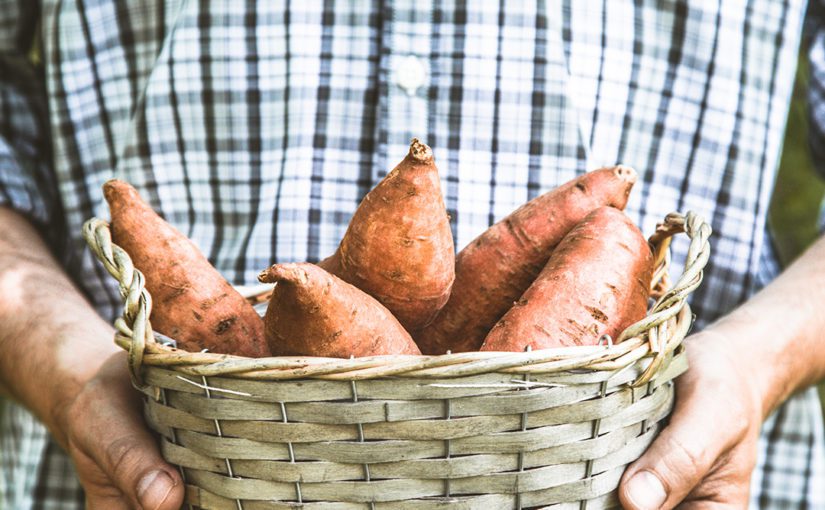May 21, 2020North Carolina SweetPotato growers anticipate no delays due to COVID-19
The North Carolina SweetPotato Commission (NCSPC) recently shared the following update on its supply and food safety situation during the COVID-19 epidemic:
Supply
The NCSPC is made up of more than 400 sweet potato growers, packers, processors and other supporting entities. Farmers across the state are working hard to prepare and plant this year’s crop as scheduled and do not anticipate any delays related to COVID-19.
North Carolina has been able to maintain its spot as the No. 1 sweetpotato-producing state by pioneering its own unique storage and curing process, a crucial piece of the harvesting process. Brought to the state in the 1980s by professor and agricultural engineer Mike Boyette at North Carolina State University, horizontal ventilation facilities can store 25-30 million bushels of sweet potatoes at a time. If correctly cured and stored in these facilities, sweetpotatoes can be kept safely for up to 14 months. The curing process actually enhances the crop’s culinary characteristics, further elevating the flavor profile of sweetpotatoes after their time in the ground. The introduction of this unique storage technology-enabled North Carolina to increase its market share as grocery chains and restaurants began buying the crop year-round, and it has played a vital role in the harvesting process ever since.
Food Safety
The safety of our products is always of the utmost importance. As always, we are continuing to take all necessary steps to ensure our crop is safe for consumers. The CDC and USDA are not aware of any reports of human illnesses that suggest COVID-19 can be transmitted by food or food packaging. The NCSPC encourages all of our farmers and growers to follow Good Agricultural Practices (GAP), which are the basic environmental and operational conditions necessary for the production of safe, wholesome fruits and vegetables. Growers must consider all elements of field production, worker health and safety and packing house sanitation, among other conditions. We also encourage all of our farmers, packers and growers to practice good hygiene – washing their hands and other surfaces often, etc. – when handling produce and to stay home when feeling sick.
















